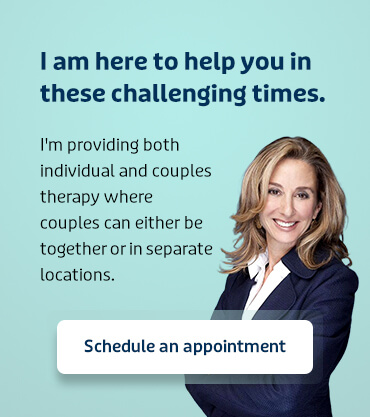
Breaking Down Barriers: How to Encourage Your Partner to Attend Couples Counseling
Introducing the idea of couples counseling can feel like stepping into unknown territory. It’s not just about suggesting it; it’s about opening up a space where both of you feel comfortable and understood. Here are some empathetic and effective strategies to help encourage your partner to consider couples counseling together.
Start with Empathy and Understanding
Begin by acknowledging your partner’s feelings and perspective. Say something like, “I’ve noticed we’ve both been under a lot of stress lately, and it seems like it’s been hard on us both.” This shows that you’re approaching the topic from a place of mutual concern rather than placing blame.
Choose the Right Time and Place
Timing is everything. Choose a moment when both of you are calm and not distracted by other commitments. A quiet, private setting where you can speak without interruptions is ideal. Avoid bringing up the topic during an argument or when tensions are high.
Express Your Feelings Using ‘I’ Statements
Use ‘I’ statements to convey your feelings and avoid sounding accusatory. For example, “I feel like we could benefit from some guidance to communicate better and understand each other more deeply.” This method helps keep the conversation focused on your feelings and avoids putting your partner on the defensive.
Focus on the Positive Outcomes
Highlight the positive aspects of seeking counseling together. Mention how it can strengthen your relationship, improve communication, and help you both understand each other’s needs better. Emphasize that counseling is a proactive step towards a happier, healthier relationship.
Assure Them of Your Commitment
Make it clear that your suggestion for counseling comes from a place of love and commitment to the relationship. You might say, “I believe in us and our future together, and I think this could be a step towards growing even stronger as a couple.”
Offer to Take the Lead
Let your partner know that you’re willing to take the initiative in finding a therapist and setting up the first appointment. This can help alleviate any logistical concerns or anxieties they might have about the process.
Share Stories or Examples
If you know of friends or public figures who have had positive experiences with couples counseling, share those stories. Sometimes, hearing about others who have benefited from counseling can make the idea more approachable and less intimidating.
Reassure Them of the Confidentiality and Professionalism
It’s important to reassure your partner that everything discussed in counseling sessions is confidential. Emphasize that therapists are professionals trained to help couples navigate their issues in a non-judgmental, supportive environment.
Be Prepared for Resistance
It’s normal for your partner to have reservations or feel hesitant about counseling. Listen to their concerns with empathy and patience. Offer to address any questions they might have together, and consider suggesting a trial session so they can experience the process firsthand without feeling committed long-term.
Acknowledge Their Fears and Concerns
Understanding and addressing your partner’s fears about counseling is crucial. They might be worried about being judged, or fear that counseling signifies failure in the relationship. Acknowledge these fears and discuss how counseling is actually a sign of strength and commitment to improving the relationship.
Emphasize It’s About Learning, Not Blaming
Make it clear that counseling isn’t about placing blame on either partner but about learning how to better support and understand each other. It’s a journey you’re embarking on together to enhance your relationship.
Closing Thoughts
Encouraging your partner to attend couples counseling is a delicate process that requires patience, empathy, and understanding. It’s about opening up a dialogue that focuses on mutual growth and the desire to strengthen your bond. Remember, taking the step to suggest counseling is in itself a powerful testament to your commitment to the relationship and each other.
RACHEL A. SUSSMAN, LCSW, is a licensed psychotherapist, relationship expert, writer and lecturer. She is the founder of Sussman Counseling, a psychotherapy practice based in New York City, specializing in treating couples and individuals with relationship dilemmas. She is the author of THE BREAKUP BIBLE: The Smart Woman’s Guide to Healing from a Breakup or Divorce (Random House).




